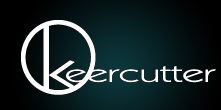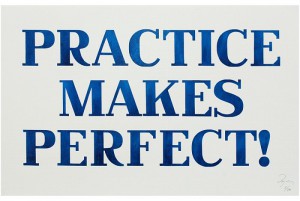The Search Begins
Part One
Do you really want this job? Then you really want to make a good first impression. Preparation and practice are the keys to a successful interview.
If you feel uncomfortable about interviewing for a job, there is a simple reason and an even simpler cure. Feeling uncomfortable almost always reflects a lack of self-confidence and uncertainty. There is only one way to overcome discomfort and that is prepare, prepare, prepare, and practice, practice, practice.
Your Search Begins Here
* Gather all of the information possible from all of your resources about the company and the hiring staff.
* Online resources – websites and social media; even search for information on the people who will be interviewing you.
* Other resources – personal contacts, representatives of the company’s competitors, business publication editors, reporters, brokers, etc.
* Tailor your accomplishments, experience, skills and training with the job needs.
* Prepare a presentation the same way you would develop any project or sales presentation. Get ready to sell yourself.
Think About How Best to Communicate
• Think about the best ways to describe your experiences and the projects you will present to interest and influence the people that you are going to meet. They want to know what work and experience you have that is relevant to their needs.
• For example, be prepared with the business reasons that a concept, design or system was successful.
• Show that you understand your contribution is one element in the success of a product, communication, service or environment by discussing how your work increased capacity, improved quality, etc.
Rehearse
• Anticipate the questions from those who will be interviewing you and prepare appropriate answers. Show passion.
• Ask your friends, colleagues or others whose judgment you trust to listen to you in a mock interview, and then tell you how you can improve.
• Ask what they would want to know about people who are interviewing with their companies.
Things to Remember About the Interview
• Some people in the interviewer role try to make that difficult- no different from a potential sales client’s reaction to the initial stages of a sale presentation. However, many times the interviewer is more uncomfortable than you are. Don’t try and read anything into it, but also don’t discount it.
• Be the best version of yourself that you can muster. Avoid forced mannerisms and expressions; practice some simple breathing exercises before the interview to relax.
• Remind yourself that you are certainly one of the top candidates for the position.
a. Trust yourself to do well.
b. Get psyched up!
c. Remind yourself that you can provide needed solutions to this organization’s problems.
d. Now, smile and comfortably proceed to win them over.
e. Look the interviewers directly in the eye. This shows confidence.
• Responding to the question “tell me more about yourself”? Once this question is asked, this is the signal of “let’s get down to it”. So, Prepare for this question.
o This is your three minute “infomercial” time. This should be an adjustable “infomercial” that could run for three minutes, but could also be done in 30 seconds, depending on the circumstances.
o In that three minute presentation, lay out your strengths and abilities and ask which they would like to discuss.
All Through the Interview, Discover Their Needs
• Why? Because you are developing rapport.
• How? When you are asked a substantive question about your experience, respond by providing a capability statement, followed by an example or story and conclude by asking an open-ended question about what they are doing about that situation now.
Responding to Objections/Concerns
• Let the interviewer know that these are things that you have thought about and certainly understand why s/he would raise the question(s). And then address those concerns by asking deeper questions, re-clarifying or giving another example. You also might ask if it is something that can be overcome or is it a sticking point and for whom? Again, you are showing interest, while building rapport.
• You must ask how you stack up against other candidates and what the interviewer is looking for specifically. Once those concerns are out on the table, refrain from being defensive, but don’t agree with their objections.
Don’t Jump the Money Gun
• Make sure you do not pre-negotiate your offer during the interview stage. If the interviewer asks how much you are looking for, whatever amount you answer determines whether they move forward with you or not. Do not give a target number at this early stage; rather, respond with something like “I believe you understand what I can bring to the table, and you will make me your best offer.”
• If you are asked about your present compensation, you must oblige them. Let them know your base salary and give them a range of what your gross salary was the year before, and/or what you expect this year. For example: “My base salary is $50 thousand dollars, and with commissions last year I W-2’d $75 thousand; and this year I am on track to W-2 between $75-$85 thousand.”
Stay tuned for part two of this series – Get on Your Feet, where we share insights into the phone interview!





Comments are closed.